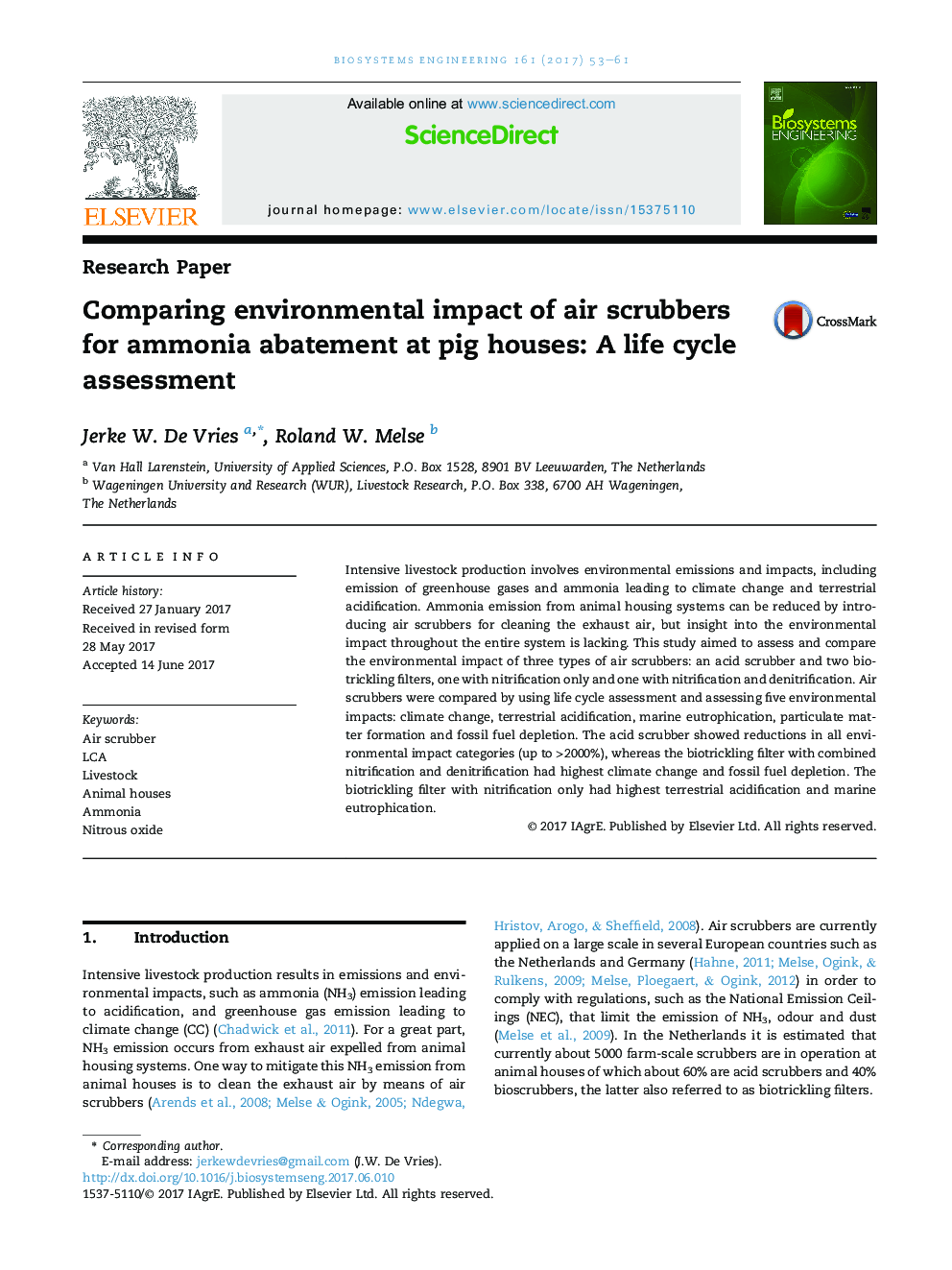| Article ID | Journal | Published Year | Pages | File Type |
|---|---|---|---|---|
| 5471794 | Biosystems Engineering | 2017 | 9 Pages |
Abstract
Intensive livestock production involves environmental emissions and impacts, including emission of greenhouse gases and ammonia leading to climate change and terrestrial acidification. Ammonia emission from animal housing systems can be reduced by introducing air scrubbers for cleaning the exhaust air, but insight into the environmental impact throughout the entire system is lacking. This study aimed to assess and compare the environmental impact of three types of air scrubbers: an acid scrubber and two biotrickling filters, one with nitrification only and one with nitrification and denitrification. Air scrubbers were compared by using life cycle assessment and assessing five environmental impacts: climate change, terrestrial acidification, marine eutrophication, particulate matter formation and fossil fuel depletion. The acid scrubber showed reductions in all environmental impact categories (up to >2000%), whereas the biotrickling filter with combined nitrification and denitrification had highest climate change and fossil fuel depletion. The biotrickling filter with nitrification only had highest terrestrial acidification and marine eutrophication.
Related Topics
Physical Sciences and Engineering
Engineering
Control and Systems Engineering
Authors
Jerke W. De Vries, Roland W. Melse,
